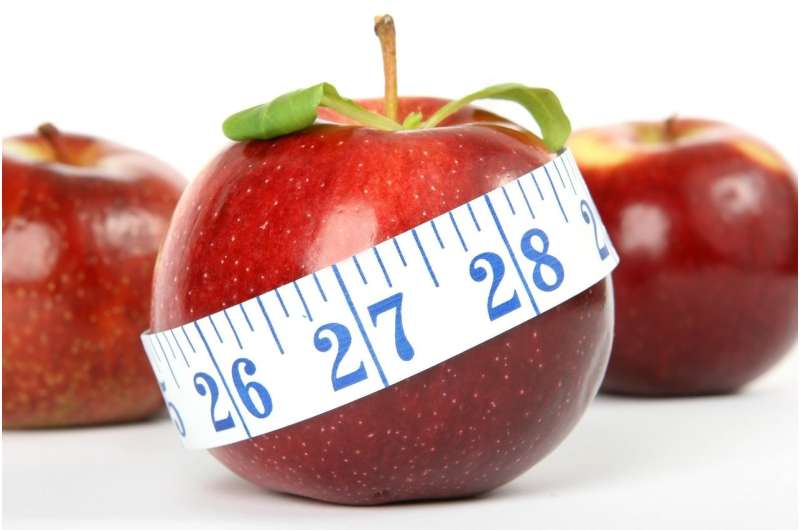This article has been reviewed according to Science X's editorial process and policies. Editors have highlighted the following attributes while ensuring the content's credibility:
fact-checked
reputable news agency
proofread
Q&A: Are all calories created equal?

While a calorie may be a calorie when it comes to the mathematical equation of weight loss, there's more to it. Calories are a unit of energy. The total calories a food or beverage provides depend on the number of grams of carbohydrates, protein, fat and/or alcohol contained. The number of calories, though, does not predict how we'll feel afterward.
For example, a 200-calorie snack of an apple with peanut butter is going to help you feel fuller and more satisfied than a 200-calorie snack of chips. The difference is in not only the food composition but food volume as well. The apple and peanut butter snack will provide fiber, fat, water and some protein. The majority of these attributes are lacking when it comes to the chips.
Think volume too—the apple snack will stretch the stomach more due to its larger size, sending that fullness signal to the brain. The 200 calories worth of chips also are going to be digested and leave the stomach faster than the apple because there's not much breakdown that needs to happen.
We also can't talk about this topic without referencing health outcomes. It is well known that the composition of one's diet, or dietary pattern, is significant. A plant-based diet containing whole grains, fruits, vegetables, unsaturated fats and lean proteins provides the body with balanced nutrition that can decrease the risk of chronic conditions.
There are multiple ways to do this healthfully. Diet styles such as Mediterranean, DASH and the Mayo Clinic Diet are examples of eating patterns that focus on high nutrient density and have been shown to promote positive health outcomes. This also can be done through a well-planned vegetarian diet. It's important to take both your food preferences and health concerns or goals into account.
So what about weight loss? Here's where calories are crucial. For example, even a Mediterranean diet does not guarantee weight loss if a calorie deficit is not present. Olive oil and nuts are excellent sources of healthy fat, but when eaten without one's total calorie intake in mind, it could, technically, cause weight gain. Using the style of eating that is best for you, consider working toward a 250–750 calorie per day deficit. This may be swapping your mid-afternoon snack for a piece of fruit or skipping your usual sweetened coffee or alcoholic beverage.
The body needs to burn more than it's consuming to produce weight loss. While exercise is always going to be recommended, it's important to remember that exercise alone is not likely to get most people into that roughly 500-calorie deficit. The majority of us will be most successful with weight loss through dietary changes.
Most diets work because adapting your baseline eating habits to fit a specific diet's protocol will likely cause you to eat fewer calories. Good news, right? Possibly. This is only going to benefit someone who can stay on said diet long term. Diets that endorse or require drastic and unrealistic changes (such as the cabbage soup diet) aren't sustainable. And when a diet is not sustainable, the weight loss won't be either.
2023 Mayo Clinic News Network. Distributed by Tribune Content Agency, LLC.




















